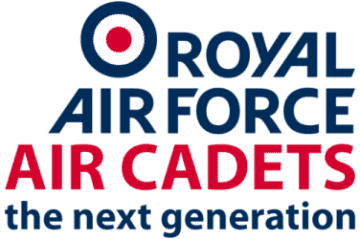It’s International Day of Woman & Girls in Science which recognises the role of women and girls in science, not only as beneficiaries, but also as agents of change.
We caught up with two fascinating women on Station who are pursuing two very different careers in the world of science. This is their journey.

Our very own medical doctor, Dr Jarvis, tells us about her career in Medicine and her advice to other women looking to pursue a science career.
“During school years I always loved the three sciences but hated maths!” grinned Dr Jarvis. “I did an extra-curricular first aid course and my mum suggested Medicine – which is something I had never considered or thought about before. Medicine is great if you have an interest in science and people.”
Doing A levels the doctor found there were more boys than girls doing sciences, but this changed during the medical degree course which was a more even 50/50 split.

Was there help around for women wanting to do science when you were doing A levels or applying for university?
“I don’t think so. Career advisors had limited knowledge and did not really know – even about medicine. I was never told about other types of sciences/engineering options. Even at careers fairs those types of jobs were quite male dominated. We need more women out there talking about these options. There needs to be more visibility,” commented Dr Jarvis. “Medicine is very balanced. You see more women doctors. In engineering you see fewer women in the public eye. Most engineers I know are male. When you see a woman in a post you can say, ‘ahh, that’s an option’."
"As a young person at school, you need to know about these wider options. If you have the intelligence and aptitude, science is an amazing career.”
As a mentor for a young military GP (General Practitioner) herself, Dr Jarvis has some sound advice; “Take all the opportunities available. See as much of the wider Air Force as you can. Go on base, get out and see the different sections. You can get a bit confined to just the medical centre in our job. Experience the whole station and how they all work.”

Medicine is traditionally a 5-year course. Training afterwards depends on which speciality you choose. Everyone does 2 years as a junior doctor, experiencing different specialities, then choose which specialism to pursue after that. For a GP it is another 3 years training, but for surgeons it is at least another 10 years to qualify.
Any advice to anyone wanting to pursue a career in medicine?
“Do it! It is fascinating and really rewarding. It is tough at times when you see difficult cases and do not know what to do. The Medicine degree is 9-5 lectures every day, which is difficult when you see students on other courses doing only a few lectures a week. Year 3 was tough trying to balance all the lectures and revise for exams. But when you enter the hospital environment you get more reward and get to put the knowledge into practice. In the military there are a lot of female doctors. The issue seems to be that many often leave relatively early due to family commitments. Managing family and military career can be challenging with deployments etc. But for me, I enjoy talking to people, and the work life balance of being a GP.”

Sergeant Campbell, who always had a passion for fixing things, took a more circuitous route to reach her goal of working in a science field.
“From my point of view girls were never encouraged to go into science, especially when you got to high school. Back in the 80s and 90s you were pushed to do home economics, teaching, nursing or secretarial work.”
It was only years later, after encouragement from a friend, that she started A level mathematics. At college, Sergeant Campbell was one of only two women on her course.
“The guys seemed to pick it up, but I couldn’t always get it. And due to an inadequate teacher, I had to go away and work things out for myself,” said the Sergeant, sadly.
With her determination paying off, Sergeant Campbell had encouragement from an unlikely source.
“My sister’s partner heard of my interest in maths and one thing led to another. That’s how I ended up going to university after doing a foundation course and doing my degree in Mechanical & Manufacturing Engineering. People were very surprised. They think I am a very ‘girly’ girl and would not do something like that,” said Sergeant Campbell with a wry smile.
Women comprised one sixth of the total number on the course with many coming back into education as mature students. There was a competitive edge between the sexes and some of the women on the course who were struggling, started a support network to help each other out.
“Everyone learns differently. Being in a large room you are thrown together and bombarded with information which I found difficult to absorb,” said the Sergeant, thoughtfully.

With a love of formulas and algebra, Sergeant Campbell enjoyed the electrical side of the course which comprised more mathematics. The pure side of physics was also favoured, but on application the Sergeant often struggled to work it out. “It goes back to taking your time to learn things properly and carefully,” said the analyst.
Why do you think so few girls are interested in (or applying to do) science?
“I put it down to society. It is all to do with the fact that it is not encouraged that much. These days it is better than 30 years ago. There are more opportunities now than there ever were when I was growing up. It needs to be advertised more and shown that science is a viable career option,” said the Sergeant, passionately. “When you watch the movies, like the 2016 film ‘Hidden Figures’ (about three African American mathematicians who worked at NASA during the space race), it gives me goose bumps to see what women had to go through, to improve the lives of working women now – and not just women, but of your colour too.”
After college, work in engineering was difficult to come by. The recession and the requirement for experience put pains to many opportunities. It was only after a move to London and spotting an advert for a recruitment fair that the Sergeant’s life changed.
“That was the turning point where I never looked back.”
Although the military was appealing to her, the Sergeant always thought her age was against her. The recruiter put pains to that argument and told her that even if you join up and move somewhere else that her friends will always be there.

“That was one of the best pieces of advice anyone has ever given me, and I have never looked back,” said the Sergeant, joyfully.
Working in the cyberspace analytical field, science is still used quite regularly, especially on courses.
What advice would you give to girls and women who want to pursue a career in science?
“Yes, I would encourage it. Some females still feel slightly intimidated by society as well as traditionally male-dominated sectors of, for example, business and industry. But if anyone out there wants to at least try it, then they should go for it. Sometimes you discover things about yourself that you did not realise you were capable of. Don’t hold back, give it a go. Even if you fail, at least you can say you tried. Everything happens for a reason and when I look at my life, I do not regret any of it,” said the Sergeant, philosophically.






